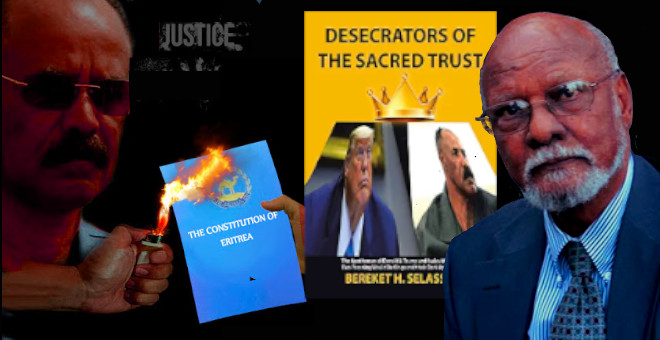Obama Slays Osama, But Did The Terrorists Flee In Terror?
 Abraham Lincoln towers in American history because, among many other accomplishments, he appealed to “the better angels of our nature.” Although he came to prominence almost a century after the Founding Fathers, he was, indeed, the last one of them. He steered the nation amid the worst violence and brought it to safe harbor by declaring “malice toward none,” and “charity for all.” Lincoln was one of America’s “tribe of eagle” who soared high when the country needed him and came back like Noah’s dove with an olive branch.
Abraham Lincoln towers in American history because, among many other accomplishments, he appealed to “the better angels of our nature.” Although he came to prominence almost a century after the Founding Fathers, he was, indeed, the last one of them. He steered the nation amid the worst violence and brought it to safe harbor by declaring “malice toward none,” and “charity for all.” Lincoln was one of America’s “tribe of eagle” who soared high when the country needed him and came back like Noah’s dove with an olive branch.
The Lincolns represent the best of America – its power and wisdom. Nations are not unlike people; what they are and represent matters. Islam instructs Muslims to envy none but two people: one whom God has given wealth and spends it righteously; and, second, whom God has given wisdom and judges by it and teaches it to others. America since its inception has done both with some out of character aberrations and the rest of the world has every right to be envious of America. Some parts of the world might never love America, but they will fear and respect its power. The solution for America is not, however, to be less American, but more American. The world also needs more of America and not less of it.
There is good reason why Americans celebrate the giants of American history: the Founding Fathers, the Lincolns, the FDRs, the JFKs and the Martin Luther Kings because they all appealed to “the better angels of our nature.” They all lived watershed moments but their actions were not only designed to answer to timely issues but to reverberate through the ages and elevate humanity in the process.
The last decade has not been easy for Americans. The so called “war on terror” has proven to be costly and victory is still illusive. The two wars of choice, the financial melt-down, and the unprecedented long periods of unemployment have eroded the twin pillars of glory that Islam teaches are to be envied by everyone. No wonder the killing of Osama bin Laden was celebrated by Americans in “The American street,” because for far too long the people have been asking “Why couldn’t we get him?” The symbolic significance of the killing of Osama bin Laden is quite understandable. I doubt if there are many people who would mourn the death of a terrorist who had made it his priority to target civilians indiscriminately.
Osama bin Laden is dead, but how about bin Ladenism? For one, Osama is not Goliath and the terrorists did not flee in terror like the Philistines. There is a legitimate fear they might actually retaliate. Besides, not all the ideas of Bin Laden were extreme. In fact, a majority of them are mainstream Muslim ideas that have been suppressed by autocratic rulers. For instance, the idea that Arabia—the birthplace of Islam—should be free of non-Muslims is as old as Islam itself.
There has to be a better understanding of Muslims and a strategy of engaging the Muslim community in a constructive manner for the advancement of world peace and harmony. America’s wisdom and power have to be deployed wisely. Terrorism is as old as history. In modern times, it has become part of American political discourse since President Theodore Roosevelt called for a crusade against it after the assassination of his predecessor, President Williams McKinley. But it never amounted to what we call today the “war on terror,” and it had never become the center-stage of American foreign and defense policy. The war-on-terror, like its predecessors—the war-on-poverty and war-on-drugs—is a misnomer, but above all it does not lead to victory that most people can agree on.
The hyperbole, exaggerations and sound bites are not doing justice to politics. 9/11 is important, but it pales in comparison to other monumental events that have defined the character of this nation. But, we have many people including the likes of the former Secretary of State, Condoleezza Rice saying, “…But President Bush has at Ground Zero probably the most important moment maybe in American history. It was when this wounded nation watched their commander-in-chief stand on that rubble and say that they will hear us, we are going to avenge this….”
It is not hard to imagine that is exactly the kind of language the terrorists of 9/11 were hoping to hear from their graves.
The desire for revenge, also, never appeals “to the better angles of our nature.” It is understandable and the pursuit of retributive justice has a human appeal to it, but it should never be the heart and soul of America’s strategy. The bitter fact is that America had invaded two sovereign countries, at least one of them, has nothing to do with Osama bin Laden and the tragedy of 9/11. What these two wars show is the absence of a well formulated, long term strategy of engaging Muslims who happen to make about 20% of the world population. The lack of this strategy even became more evident during the recent Arab Spring and the ongoing mass uprisings. The “wait-and-see” and “the devil-we-know” approach should not be the response of a superpower. In a language reminiscent of John F Kennedy, America should not engage the Arab and Muslim world out of fear but it should never fear engaging the Arab and Muslim world.
Unfortunately, the war-on-terror was perceived to be driven by the desire to punish, take revenge and teach a lesson that would not be forgotten. The mission was doomed to suffer for it did not have clearly defined enemies and territories. The US seemed to be on a scavenger hunt in all over the Muslim world.
After a long season of disappointments with the war-on-terror, President Obama was finally able to report to Americans that America’s most wanted terrorist is dead. Osama bin Laden would no longer be able to order his followers to kill and that is welcome news. The sad thing about this episode is that it should not have happened almost ten years after the declaration of the war-on-terror. The success of this particular mission does not tell us much about the extraordinary courage and talent of America’s elite forces; for no one doubts their courage and ability. But it tells us more about the extraordinary ineptitude of the political leaders who had failed to use America’s power with wisdom. It should be a sober reminder of what could go wrong when leaders bark at the wrong tree.
The spontaneous and unpremeditated celebrations of the death of Osama bin Laden should not be condemned. Those who are using the Bible, “…have no pleasure in the death of the wicked, but that the wicked turn from their ways and live,” should also read, “The righteous will rejoice when they see vengeance done; they will bathe their feet in the blood of the wicked.” Let’s not forget that David the shepherd boy, who later became King David, like today’s terrorist, cut off the head of Goliath after slaying him. The women in the Israelite camp celebrated the death of Goliath with songs and dancing.
The debate of whether people should celebrate the death of Osama bin Laden and how his body was disposed is trivial. What is even more trivial is the notion that Osama bin Laden had received a proper Muslim funeral. This meaningless token of respect would not endear many Muslims who wanted to focus on substantive issues.
The focus should be on how to bring the so called war-on-terror to an end and deploy America’s wisdom and power to the service of Americans in particular and the world in general. There is a way to do it and it is a proven way; it is the Lincoln way. America must always appeal to “the angels of our nature,” and declare “malice to none,” and “charity to all.”
Whether symbolic or not, the death of Osama bin Ladin is a victory, but, what is more important is what to do with it. In the words of Prophet Mohammed, “There is no flight after victory, but struggle and planning. And if others are hostile to you, turn away.” The death of Osama bin Laden and the Arab Spring present an opportunity to right what went wrong, and to support and nudge those on the right side of humanity and history. America has once deployed its power and wisdom in Europe and Asia for the betterment of those respective populations, and I don’t see any reason why it can’t do it again in the Arab and Muslim world.
Semere T Habtemariam is the author of “Hearts Like Birds.” It is a thoughtful portrait of how Muslims negotiate a Muslim identity in non-Muslim parts of the world. It reflects on their culture, history and lives to answer a timely question of whether there is anything in Islam that lends itself to terrorism.The book is available on www.semerehabtemariam.com, Amazon.com and Kindle e-book.




Awate Forum